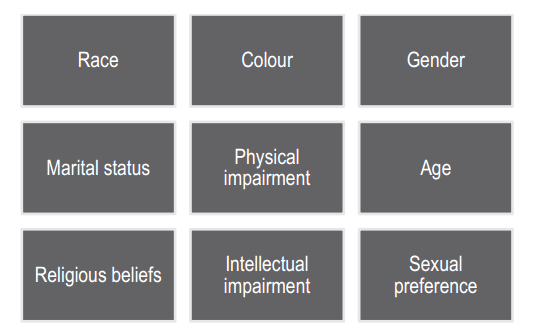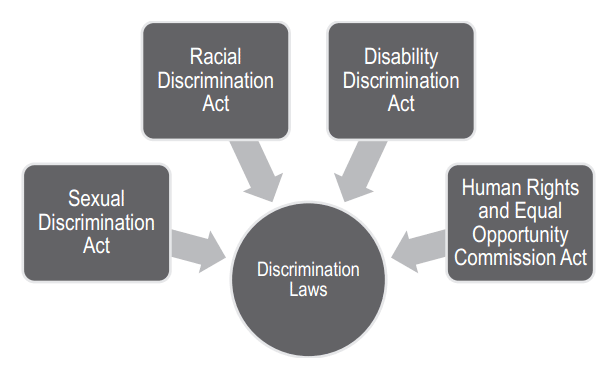As a team member in a retail store you don’t work in isolation. You work with a whole range of people. These include your direct managers, the other employees in your store, other supervisors and a whole range of employees in other parts of the organisation. You may even deal with people who are part of the extended team. These include Centre Management staff, cleaners, delivery drivers, suppliers and the like.
You need to have good working relationships with all of these people. Otherwise communication and information flows, and work quality and quantity are likely to be badly affected. At the same time, the potential for conflict between individuals and work groups is likely to increase.
To learn how to steer your success as a team leader, the ARA Retail Institute runs multiple workshops on leadership and team culture. Join the ARA Retial Institute in their latest workshop looks into how a team’s attitude and behaviours influence the outcome of challenging customer moments.
{{cta(‘3fa196fc-cf42-4e1c-a8e3-c7b0ae3dc933′,’justifycenter’)}}
A key part of maintaining a good working relationship is your ability to show support for all members of the team.
Showing support involves:
- Being courteous and helpful at all times
- Offering assistance to other team members
- Displaying non-discriminatory behaviour
- Ensuring all of your allocated tasks are completed on time
- Asking for help when you need to
- Listening well and asking questions when unsure
Offer assistance to other team members
To be a successful employee you need to develop great interpersonal skills. One of the most important interpersonal skills is your ability to be courteous to everyone, regardless of the situation.
Courtesy is important because it shows respect to others. Common courtesies such as listening when someone else is talking and answering a question you’ve been asked make it possible for us to get along with people in the workplace. Courtesy is really about treating people in the way that you would like people to treat you. There are many different ways of showing courtesy in the workplace. These include:

- Give honest feedback
- Give recognition for a job well done
- Acknowledge other staff
- Don’t spend an excessive amount of time discussing personal life at work
- As much as possible, respond promptly to requests and questions
- Clean up after yourself
Cooperation
In today’s dynamic work environment, you have to build successful work relationships and interact with people in a positive way to achieve your workplace goals. Good relationships are built on a culture of co-operation where each individual is working towards the achievement of shared aims and objectives.
When people co-operate in the workplace, the atmosphere is more pleasant to work in and more people will feel like they are part of an effective team. A great way to achieve this is to offer assistance to other team members when and if you can.
Even though you need to complete your own tasks, look for opportunities to help other staff members out. Not only will it make you a valuable team member, you might also learn a new skill along the way.
Remain non-discriminatory
The definition of ‘discrimination’ under the law is – Treating one person or group of people less fairly than another in the same or similar circumstances.
Discrimination occurs where a person is treated less favourably because of:

Working in the retail environment you will work with and meet many people from different backgrounds. Australia is a very multi-cultural society with a wide diversity of people. On an almost daily basis you will be exposed to people from different cultural, religious or racial backgrounds. You will also meet people with attitudes and behaviours that are different to your own.
It is quite natural for you to have an opinion about people who are different to you. These opinions are formed throughout our life and are influenced by many different aspects. However, you need to be very aware of these opinions and ensure that they do not become prejudices. When that happens, you may consciously or unconsciously discriminate against certain people.
It is important that you are careful not to display discriminatory behaviour to customers and other staff members.
In the workplace, the laws against anti-discrimination do not only apply to employers dealing with employees. As an employee, you also have a responsibility to behave in a non-discriminatory way and use non-discriminatory language when interacting with customers, staff and management.
The effects on the person being discriminated against may include feeling:
- Embarrassed
- Uncomfortable
- Intimidated
- Angry
- Humiliated
- Anxious
- Afraid
It can lead to:
- Severe distress to individuals
- Low staff morale
- Reduced productivity
- Forced career moves
- Ill health, absenteeism, and increased leave
- Resignations
- Poor image of the Employer in the eyes of the staff/public
- Re-direction of scarce resources
Discriminatory behaviour
Discriminatory behaviour could be verbal or non-verbal. It is the non-verbal communication that underscores what we say, our verbal communication and must be taken into account when greeting customers.
Often, like non-verbal communication, it is what we do or do not do which indicates our feelings. Maintain fairness with customers by:
- Make sure to stop tasks to serve customers.
- Never continue conversations with fellow staff members in front of customers
- Be as quick as possible on the telephone and only take necessary business calls. Ask the caller to hold for a short period if necessary.
- If busy with another customer say you will be with them in a minute.
All of these behaviours show how ignoring customers in preference of something and someone else can be discriminatory.
The same sought of behaviours can disrupt workplace relations with fellow workers. Remember, teamwork is the most effective method by which to get a job done and therefore it is counter-productive to disrupt the teamwork atmosphere with discriminatory behaviour.
Language
Discriminatory language is that which creates or reinforces differences between people. Types of discriminatory language that you may find in the workplace include:
- Derogatory comments
- Racist jokes
- Stereotyping
- Use of outdated terms
- Negative labelling
- Trivialisation
- Demeaning language
Discrimination in language means that the language is not respectful or accurate in its references to particular individuals or groups of people.
As both written and spoken language can be used to show discriminatory feelings and attitudes towards particular individuals or groups of people, it is essential that when communicating in the workplace, the individual considers:
- Their own feelings and attitudes
- The feelings and attitudes of others
- Using language which does not discriminate against anyone unfairly.
Company policies
Most companies within Australia will have a documented anti-discrimination policy. This should cover all areas of discrimination and provide staff with a clear idea of what is considered to be discriminatory behaviour. It should also outline the steps to take within your workplace if you feel that you have been discriminated against. Reporting of anti-discriminatory behaviour is important to help ensure the workplace remains safe, inclusive and free of prejudices.
Staff members should ensure that they understand the company’s anti-discrimination policy. It is especially important to understand what the consequences may be if you act towards someone in a discriminatory way. When in doubt, ask your supervisor or manager to clarify areas of uncertainty.
Legislation
The anti-discrimination laws that exist in Australia and around the world are designed to ensure that every individual gets “a fair go”. Penalties for people or companies who are found guilty of discriminatory behaviour are very severe.
In Australia, there are several pieces of legislation which cover discrimination in the workplace. These are:

About The ARA Retail Institute
ARA Retail Institute is Australia’s leading retail training provider for both accredited and non-accredited learning programs. For more information, please visit: www.retailinstitute.org.au




















